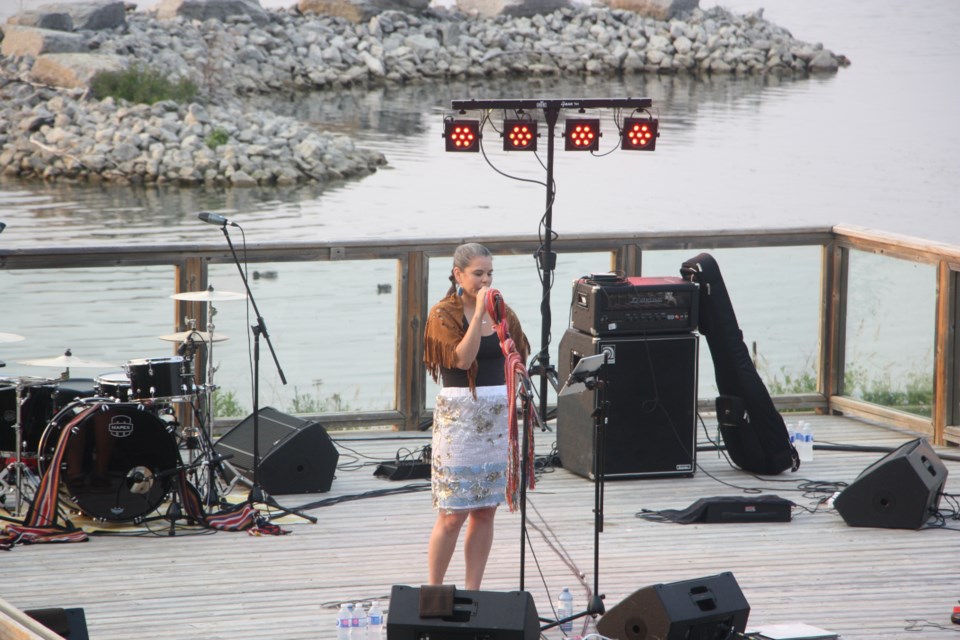Shé:kon sewakwé:kon, greetings all. Nia:wen, thank you for coming or coming back.
June is National Indigenous History Month; it is coming to a close. I often come out of this month with many conversations and interactions to contemplate. Many beautiful events and initiatives have taken place to celebrate our cultures and people.
I’m grateful for this time to share the pride of my Indigenous nationhood. Although there is still a long road ahead, there is progress, and more and more people are ready to listen.
Highlighting the Indigenous experience in Canada also comes with a volume increase of those opposed to efforts related to reconciliation, exposing truths, and acknowledging injustice. I’ve even become aware that there is a faction of residential school deniers – that’s inexplicable considering the immense evidence, including living witnesses and victims.
Sometimes we give people too much credit by calling them ignorant, when in fact they are being arrogant. For some, there is a conscious choice to remain embedded in the story woven by our oppressors. The lies allowed Canadians to turn a blind eye, look down on us, and dismiss our lived experience; being stereotyped as complainers, as a fiscal burden, and ungrateful, unwilling citizens.
It’s not a case of not knowing, it is a refusal to accept the redressing of the historical falsehoods that have plagued Indigenous peoples since colonization. The bias that was invited in through past propaganda, took up residence in Canada’s communities and neighbourhoods.
Perhaps the idea of taking the foot off the backs of Indigenous people and allowing us to stand up uninhibited can be threatening to those who have enjoyed the liberties of being the dominant race in this nation.
Capitalism is built on competition – a dog-eat-dog world. It creates the illusion that there is only so much to go around – a limited amount of cheese at the end of the rat race. Society fosters the chase for personal happiness, success, and wealth. And it is exactly that, a perpetual race because happiness is fleeting, success is subjective, and financial wealth is a construct.
My teachings tell me to walk a path toward peace. That walk means caring for others and your community along the way. It means being invested in the present, fostering healthy relationships with all the life around you, and contributing to the protection of our future generations – not just generations of people. I reference again the notion of the Good Mind which my column is named after.
I may never get to my destination and that does not translate to failure. The beauty is that what you discover on this path is belonging, connection, hope, and a purposeful life. The hardships and grief are shared with the circle of care created through this way of being.
I’ve said it before, our loss of self-governance and self-determination – although much more profound for us – was a loss to all people. If the values and teachings encoded in our traditional stories and ways of doing had flourished alongside those brought by settler nations, there would be less disparity and our land and waters would be a priority for protection.
Land is borrowed from future generations. We don’t have a right to the land, we have a responsibility to the land. The health of Mother Earth means a bounty of provisions that can promote all life.
Our ways won’t take away from yours. If anything, it would offer another kind of richness and maybe you too would seek peace.
Happy Indigenous History Month. I’d be remiss if I didn’t also say, happy Pride Month.
Skén:nen, peace.
Jillian Morris is Kanien’kehá:ka, turtle clan and band member of Six Nations of the Grand River Territory now living in Collingwood, where she also serves as Poet Laureate. She shares stories and experience passed down through the oral traditions of Kanien’kehá:ka culture in her regular column, entitled Ka’nikonhrí:io, (The Good Mind) published on CollingwoodToday.ca.
